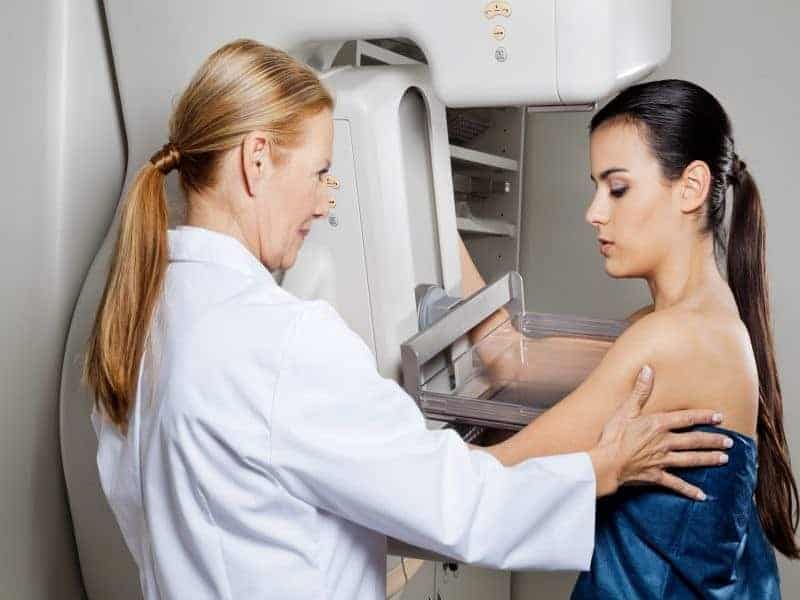TUESDAY, June 26, 2018 (HealthDay News) — Women with dense breasts have a higher rate of recall, higher rates of screen-detected and interval breast cancers, and more lymph node-positive disease, according to a study published online June 26 in Radiology.
Nataliia Moshina, M.D., Ph.D., from the Cancer Registry of Norway, and colleagues conducted a retrospective study including data from 107,949 women aged 50 to 69 years who underwent 307,015 screening examinations from 2007 to 2015. Automated software was used to classify mammographic density as nondense or dense.
The researchers found that breasts were classified as dense in 28 percent of the screening examinations. The recall rates were 2.7 and 3.6 percent for women with nondense versus dense breasts; biopsy rates were 1.1 and 1.4 percent; and the rates of screen-detected cancer and interval breast cancer were 5.5 and 6.7 per 1,000 examinations and 1.2 and 2.8 per 1,000 examinations, respectively. The sensitivity was 82 and 71 percent for nondense and dense breasts respectively, while specificity was 98 and 97 percent. The mean tumor diameter was 15.1 and 16.6 mm in nondense and dense breasts, respectively, for screen-detected cancer, and lymph node-positive disease was identified in 18 and 24 percent of women, respectively.
“Screening examinations of women with dense breasts classified by using automated software resulted in higher recall rate, lower sensitivity, larger tumor diameter, and more lymph node-positive disease compared with women with nondense breasts,” the authors write.
Several authors disclosed ties to the health care and medical technology industries.
Abstract/Full Text (subscription or payment may be required)
Editorial (subscription or payment may be required)
Copyright © 2018 HealthDay. All rights reserved.



